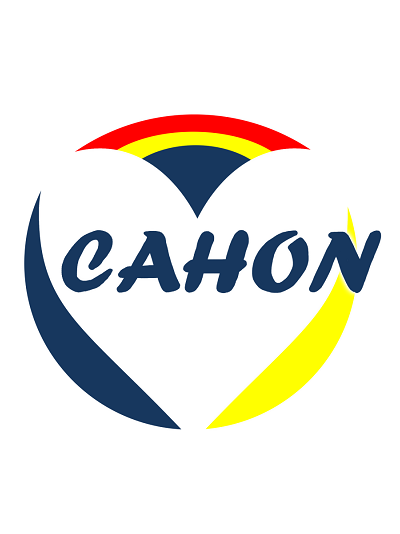仅 c-Myc 就足以将成纤维细胞重编程为功能性巨噬细胞
IF 29.5
1区 医学
Q1 HEMATOLOGY
引用次数: 0
摘要
以巨噬细胞为基础的细胞疗法在实体瘤治疗中大有可为,但如何高效获取巨噬细胞仍是一项挑战。诱导多能干细胞(iPSC)诱导的巨噬细胞是一种宝贵的来源,但耗时长、成本高。应用重编程技术可以从体细胞中生成巨噬细胞,从而促进基于细胞的疗法的发展,治疗多种恶性疾病。研究人员通过流式细胞术和单细胞RNA测序分析了CD45+髓样细胞复合体(MCC)和诱导巨噬细胞(iMac)的组成。通过两种移植试验评估了CD45+ MCC的移植能力。通过 ChIP-qPCR 和启动子报告及双荧光素酶检测评估了 c-Myc 对 MafB 的调控。通过流式细胞术和免疫荧光法研究了 iMac 的表型和吞噬能力。白血病、乳腺癌和患者衍生肿瘤异种移植模型被用来探索 iMac 的抗肿瘤功能。在此,我们报告了一种新方法的建立情况,这种方法可通过 c-Myc 过表达将成纤维细胞重编程为具有吞噬活性的功能性巨噬细胞。在 iPSC 培养基中异位表达 c-Myc 的成纤维细胞能迅速生成具有移植能力的 CD45+ MCC 中间体,并能重新填充不同的造血区。MCC 中间体可稳定地维持在 iPSC 培养基中,并在 M-CSF 细胞因子刺激下不断生成功能性和高纯度的 iMac。对MCC中间体的单细胞转录组分析表明,c-Myc能上调巨噬细胞分化的主要调控因子MafB的表达,从而促进巨噬细胞分化。iMac 细胞在白血病、乳腺癌和源自患者的肿瘤异种移植模型中显示出显著增强的体内持久性和对肿瘤进展的抑制作用。我们的研究结果表明,单凭c-Myc就足以将成纤维细胞重编程为功能性巨噬细胞,这支持了c-Myc重编程成纤维细胞的策略,有助于规避获得 "现成 "巨噬细胞用于抗癌免疫疗法的长期障碍。本文章由计算机程序翻译,如有差异,请以英文原文为准。
c-Myc alone is enough to reprogram fibroblasts into functional macrophages
Macrophage-based cell therapy is promising in solid tumors, but the efficient acquisition of macrophages remains a challenge. Induced pluripotent stem cell (iPSC)-induced macrophages are a valuable source, but time-consuming and costly. The application of reprogramming technologies allows for the generation of macrophages from somatic cells, thereby facilitating the advancement of cell-based therapies for numerous malignant diseases. The composition of CD45+ myeloid-like cell complex (MCC) and induced macrophage (iMac) were analyzed by flow cytometry and single-cell RNA sequencing. The engraftment capacity of CD45+ MCC was evaluated by two transplantation assays. Regulation of c-Myc on MafB was evaluated by ChIP-qPCR and promoter reporter and dual luciferase assays. The phenotype and phagocytosis of iMac were explored by flow cytometry and immunofluorescence. Leukemia, breast cancer, and patient-derived tumor xenograft models were used to explore the anti-tumor function of iMac. Here we report on the establishment of a novel methodology allowing for reprogramming fibroblasts into functional macrophages with phagocytic activity by c-Myc overexpression. Fibroblasts with ectopic expression of c-Myc in iPSC medium rapidly generated CD45+ MCC intermediates with engraftment capacity as well as the repopulation of distinct hematopoietic compartments. MCC intermediates were stably maintained in iPSC medium and continuously generated functional and highly pure iMac just by M-CSF cytokine stimulation. Single-cell transcriptomic analysis of MCC intermediates revealed that c-Myc up-regulated the expression of MafB, a major regulator of macrophage differentiation, to promote macrophage differentiation. Characterization of the iMac activity showed NF-κB signaling activation and a pro-inflammatory phenotype. iMac cells displayed significantly increased in vivo persistence and inhibition of tumor progression in leukemia, breast cancer, and patient-derived tumor xenograft models. Our findings demonstrate that c-Myc alone is enough to reprogram fibroblasts into functional macrophages, supporting that c-Myc reprogramming strategy of fibroblasts can help circumvent long-standing obstacles to gaining “off-the-shelf” macrophages for anti-cancer immunotherapy.
求助全文
通过发布文献求助,成功后即可免费获取论文全文。
去求助
来源期刊
CiteScore
48.10
自引率
2.10%
发文量
169
审稿时长
6-12 weeks
期刊介绍:
The Journal of Hematology & Oncology, an open-access journal, publishes high-quality research covering all aspects of hematology and oncology, including reviews and research highlights on "hot topics" by leading experts.
Given the close relationship and rapid evolution of hematology and oncology, the journal aims to meet the demand for a dedicated platform for publishing discoveries from both fields. It serves as an international platform for sharing laboratory and clinical findings among laboratory scientists, physician scientists, hematologists, and oncologists in an open-access format. With a rapid turnaround time from submission to publication, the journal facilitates real-time sharing of knowledge and new successes.

 求助内容:
求助内容: 应助结果提醒方式:
应助结果提醒方式:


